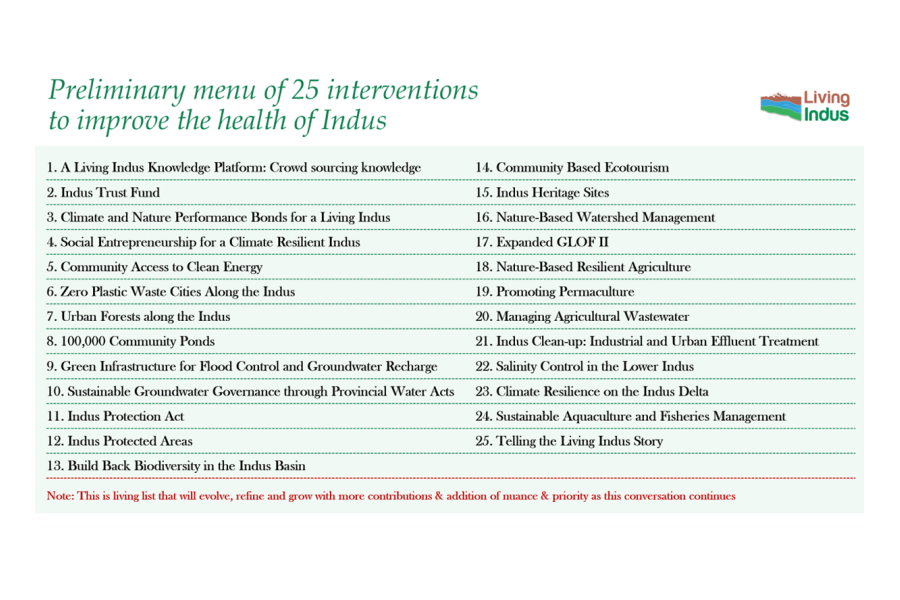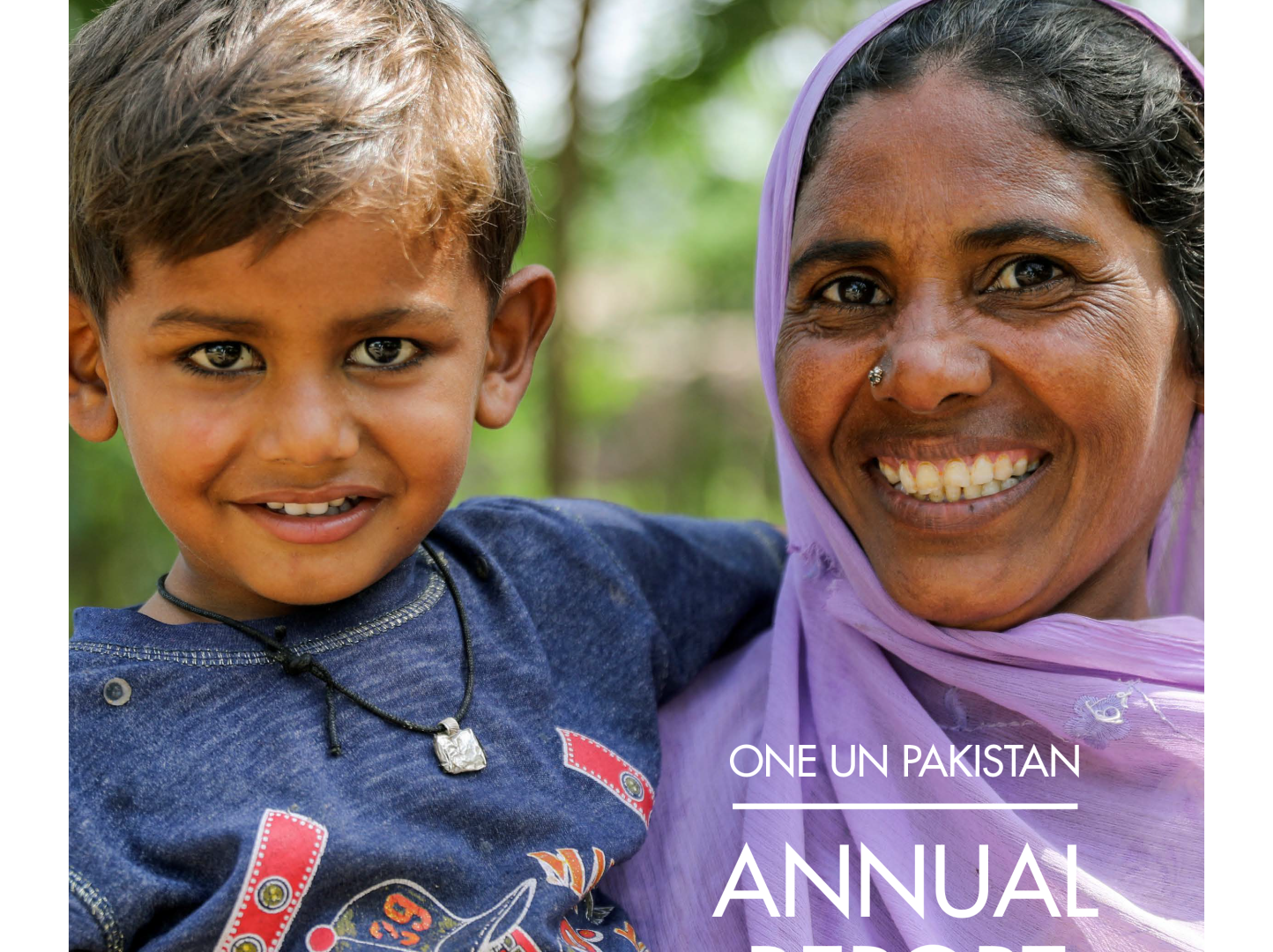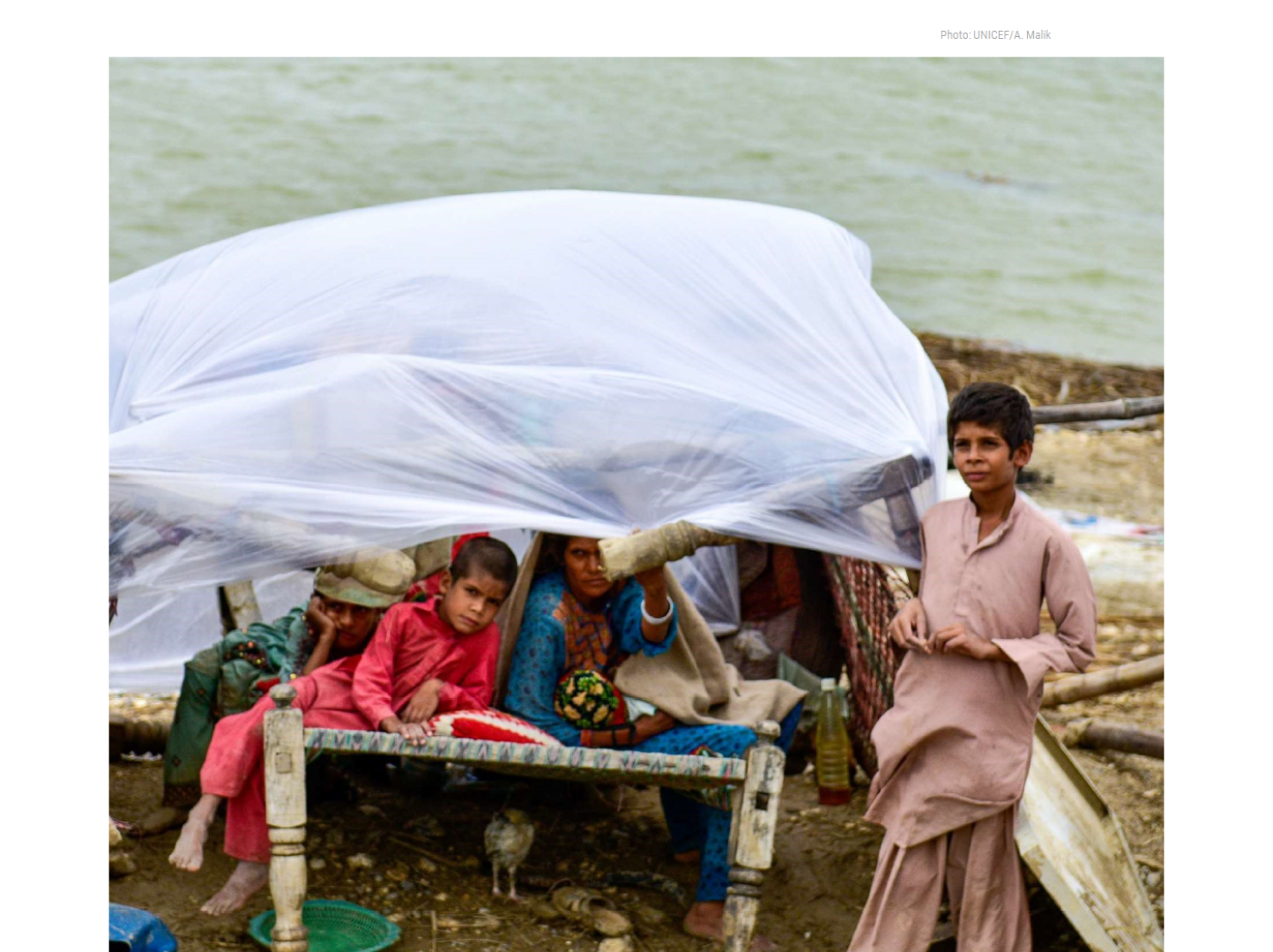Living Indus

Living Indus is as an umbrella initiative and a call to action to lead and consolidate initiatives to restore the ecological health of the Indus within the boundaries of Pakistan, which is most vulnerable to climate change. Extensive consultations with public sector, private sector, experts, and civil society led to a ‘living’ menu of 25 preliminary interventions, which focus on nature-based solutions and ecosystem-based adaptation approaches to protect, conserve, and restore natural, terrestrial, freshwater, coastal and marine ecosystems in the Indus Basin.
The Living Indus Initiative flows from two sources: first, it springs from a sober assessment of the present situation, which is the degraded state of Indus ecosystems. The second source for the Initiative is the growing demand of the nation and its population and communities for action to ensure a healthy future rooted in a resilient ecosystem, in the steady building of human, social and natural capital, and in a shared vision for a more equitable and stable future. Living Indus is a preliminary contribution to what we hope will be an evolving and continuing conversation amongst policymakers as well and citizens on how we might respond if the Indus were to speak to us and ask what we are doing to safeguard its – and our own – health in this ‘Age of Adaptation’ to global climate change.
“We aspire to an Indus Basin that can sustain a thriving civilization from its sources to the ocean - a basin whose natural resources and ecosystems have been repaired and restored, and are resilient in the face of climate change.”
Pakistan is consistently ranked as amongst the ten most vulnerable countries to the effects of global climate change, mostly of the impacts on the Indus system. Having already seen an average temperature increase of 1 degree Celsius over the last three decades and witnessing highly erratic and extreme weather events over the last decade, Pakistan’s vulnerability to climate challenge is expected to become more severe in the future both in absolute and (globally) comparative terms. Pakistan is already entrenched in the ‘Age of Adaptation’ where it has to be dealing with and preparing for climate impacts even as it continues to contribute to global emissions mitigation. Climate change, for Pakistan, is therefore primarily a water challenge.

The goal is to mobilize a movement of ideas and action at every level of state and society that aspires to repair and restore a thriving and healthy Indus for today and into tomorrow. Realizing the vision of the Living Indus initiative will require using all the tools in the toolbox, bringing to bear a wider and deeper mobilization than has been tried in the past, and deploying innovation and creativity that will draw from the deep pool of energy and imagination available in Pakistan – especially amongst the passions of its young.
The initiative is prepared through learnings from existing and planned initiatives, policies and programmes and to identify pathways to enhancing the health of the Indus Basin at a higher level of urgency and ambition, through the scaling up of existing initiatives, implementation of new and innovative interventions in the short term, and the identification and deployment of as-yet-untried approaches drawn from global best practice e.g. the Indus Trust Fund and the Living Indus Knowledge Platform: Crowd sourcing knowledge. The proposed interventions are designed to be a living list that will evolve, refine, and grow with more contributions and addition of nuance and priority as this conversation continues.
The time to act is now. Let us not delay action and start wherever we can, building on what we can do now and create a momentum of action. This is not a ‘program’ that much necessarily be funded fully for anything to happen, it can start at any point and build upwards and outwards. The cost of inaction is far more, and the list of interventions provides opportunities at every level of investment suitable to a range of budgetary constraints. Indeed, the energy, vision and commitment of Pakistan’s youth is the single greatest reason for hope that the goal of the Living Indus Initiative is within reach. The time for discussion is over, and the time to act is now!
Website: http://livingindus.com
To learn more, you can contact: unic-islamabad@un.org





![پائىدار ترقىاتى تعاون مىں تعاون کے لئے اقوامِ متحدہ کا فرىم ورک [UNSDCF] 2023 تا 2027](/sites/default/files/styles/big_carousel_featured_image/public/2023-05/UNSDCF-Abridged-Urdu-1.jpg?h=7230c591&itok=SIgR7ej8)


